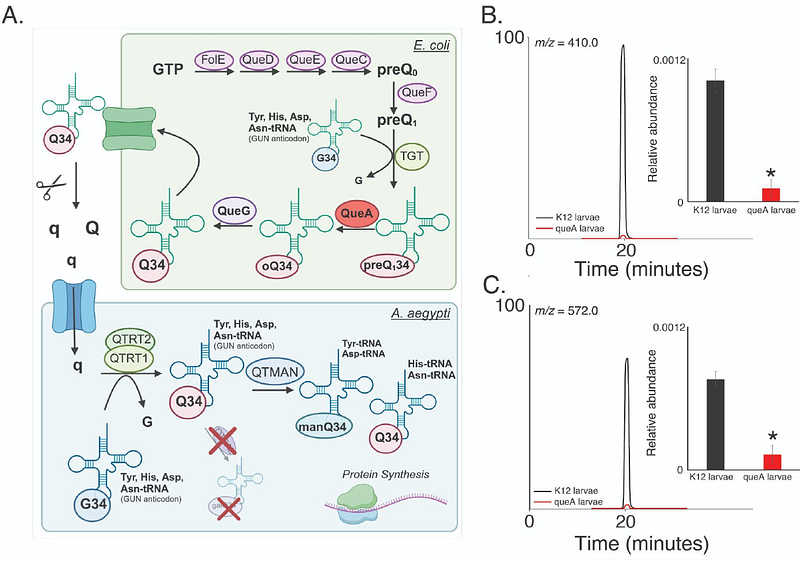A microbiome-derived transfer RNA modification underlies behavioral optimums and predator avoidance in mosquito larvae

A microbiome-derived transfer RNA modification underlies behavioral optimums and predator avoidance in mosquito larvae
Kelley, M.; Rathore, S.; Chandrasegaran, K.; Herbert, C.; Sabile, C. E. G.; Wood, T.; Joves, J.; Palacios, A.; Susanto, E.; Uhran, M.; Ramirez, A. L.; Chen, S.-C.; Singh, K.; Khalid, M. S.; Vinauger, C.; Buschbeck, E.; Limbach, P. A.; Benoit, J. B.
AbstractThe gut microbiome is a rich source of nutrients that are critical to the development and biology of eukaryotes. Transfer RNAs (tRNAs) are essential components of protein synthesis, and some chemical modifications to tRNA rely on the availability of microbiome-derived nutrients. In eukaryotes, the micronutrient queuosine (Q) is salvaged from the microbiome or diet and then incorporated into eukaryotic tRNA to influence the speed and efficiency of protein synthesis. Here, we examine the role of microbiome-derived Q in mosquito larval development and behavior. When mosquito larvae are grown with a microbiome incapable of synthesizing Q, there is a significant impact on tyrosine levels and processes, which correlate with defects in behavior and cuticle formation. Due to defects in movement and behavioral responses, Q-deficient larvae demonstrate impaired predator evasion, leading to higher instances of capture by predaceous beetle larvae. The broad effects of Q deficiency in mosquito larvae highlight the importance of microbially-derived Q for eukaryotes to reach their physiological and behavioral optimums.